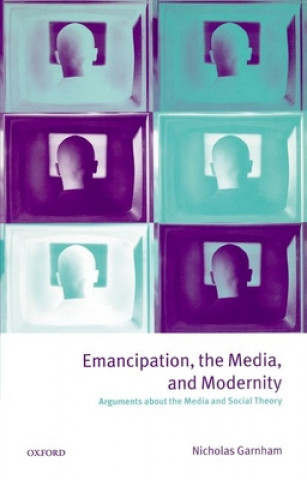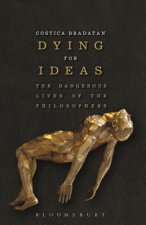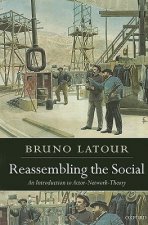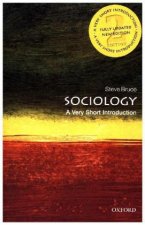
Code: 04528587
Emancipation, the Media, and Modernity
by Nicholas Garnham
This book adopts a polemical stance. It approaches the problems raised by the media by way of a set of arguments with the two dominant paradigms now current for thinking about the mediaDSpost-modernism and Information Society theo ... more
- Language:
 English
English - Binding: Paperback
- Number of pages: 214
Publisher: Oxford University Press, 2000
- More about this

You might also like
-

Foundations of Long Wave Theory
585.88 € -10 % -

How to Use Creative Perspective
15.66 € -4 % -

Disastrous History Of The World
14.13 € -

Introducing Sartre
10.23 € -13 % -

Clodia Metelli
69.33 € -

Dread Wyrm
14.43 € -23 % -

Communicating with Today's Patient: Essentials to Save Time, Decrease Risk & Increase Patient Compliance
108.87 €
Give this book as a present today
- Order book and choose Gift Order.
- We will send you book gift voucher at once. You can give it out to anyone.
- Book will be send to donee, nothing more to care about.
More about Emancipation, the Media, and Modernity
You get 223 loyalty points
 Book synopsis
Book synopsis
This book adopts a polemical stance. It approaches the problems raised by the media by way of a set of arguments with the two dominant paradigms now current for thinking about the mediaDSpost-modernism and Information Society theory. It argues that the media are important because they raise a set of questions that have been central to social and political theory since the Enlightenment. In a series of probes into different sets of questions raised by the media, the argument of the book focuses on the problem raised by what Kant called the unsocial sociability of human kind. Under what conditions could autonomous, free individuals live in viable social communities. Or to put it another way what are the related scope for, and limits on, human reason and emancipation. In conducting this argument the book first argues for a necessarily historical perspective. It then goes on to examine the implications for emancipation of seeing the media as cultural industries within the wider systems world of the capitalist market economy; of seeing the media as technologies; of the specialisation of intellectual production and of the separation and increasing social distance between the producers and consumers of symbols. It then goes on to argue, against current ethnographic trends in audience research and against the focus on everyday life, for a reinstatement of interest in the statistical reality of audiences and effects, and for a recognition through a return to the Hegelian roots of commodity fetishism, and the symbolic interactionist creation of identities, that an active audience can be actively involved in its own domination. The argument then turns to the problem of how we evaluate the symbolic forms that the media circulate and whether such evaluation can be anything more than a matter of personal taste. It is argued that evaluation is in practice unavoidable and without some standards that are more than just subjective any criticism of the medias performance is impossible. Via an examination of the debate between the sociology of art and aesthetics it argues for the ethical foundations of aesthetic judgement and for the establishment of agreed standards of aesthetic judgement via the discourse ethic that underlies the argument of the entire book. This foregrounding of the discourse ethic then leads on to a discussion of the media and politics. Here the argument is that arguments about the media and politics are at the heart of arguments about politics itself. These arguments focus, it is argued, upon the shifting division between the public and the private. Here the book returns to the roots of public sphere theory in Rousseaus arguments for the centrality of public spectacle and Kants argument for the centrality of public reason in the practice of democratic politics.
 Book details
Book details
Book category Books in English Society & social sciences Sociology & anthropology Sociology
90.13 €
- Full title: Emancipation, the Media, and Modernity
- Subtitle: Arguments about the Media and Social Theory
- Author: Nicholas Garnham
- Language:
 English
English - Binding: Paperback
- Number of pages: 214
- EAN: 9780198742241
- ISBN: 019874224X
- ID: 04528587
- Publisher: Oxford University Press
- Weight: 276 g
- Dimensions: 218 × 139 × 12 mm
- Date of publishing: 06. April 2000
Trending among others
-

NINETY PERCENT OF EVERYTHING
18.63 € -6 % -

Birth Of A Mother
22.42 € -

Fair Play Deck
20.48 € -9 % -

Tragedy and Hope
44.55 € -

Sex at Dawn
13.72 € -21 % -

Regretting Motherhood
15.76 € -9 % -

Theory of the Leisure Class
12.28 € -23 % -

Social Intelligence
12.90 € -24 % -

Eroticism
12.28 € -23 % -

Surrendered Wife
11.15 € -23 % -

Gifts of Imperfection: 10th Anniversary Edition
28.77 € -

Bushido the Soul of Japan
11.46 € -

Tragedy and Hope
71.08 € -

World-Systems Analysis
22.01 € -12 % -

Cruel Optimism
27.75 € -6 % -

Critique of Everyday Life
37.38 € -19 % -

Studies on the Abuse & Decline of Reason
18.53 € -

Post-Adoption Blues
18.73 € -

Blueprint for Revolution
12.28 € -23 % -

Wanderlust
16.99 € -20 % -

Qualitative Research and Theory Development
45.88 € -9 % -

Dying for Ideas
13.51 € -10 % -

Social Change in a Peripheral Society
33.59 € -

Treatise on the Family
73.23 € -

From Benito Mussolini to Hugo Chavez
46.90 € -

Being Mortal
19.76 € -9 % -

Marriageology
25.80 € -5 % -

Return to Meaning
56.33 € -

Intimate Communion
13.82 € -20 % -

Cartoon Guide to Statistics
19.55 € -16 % -

Small Is Beautiful
11.15 € -23 % -

Book of Tea
10.13 € -22 % -

More Than Two
30.72 € -2 % -

World of Sex
6.85 € -23 % -

Being Mortal
13.82 € -1 % -

True Believer
14.23 € -23 % -

Marriage, a History
18.53 € -13 % -

Why Love Hurts - A Sociological Explanation
18.63 € -

Past Mortems
10.13 € -22 % -

Population Control
14.43 € -23 % -

Reassembling the Social
53.36 € -

Class Ceiling
13.10 € -10 % -

Chrysanthemum and the Sword
18.94 € -

Family and Civilization
22.93 € -6 % -

Braving the Wilderness
8.70 € -21 % -

Intercourse
15.46 € -23 % -

Sociology: A Very Short Introduction
10.13 € -22 % -

Death and the Afterlife
18.84 € -22 % -

Social Construction of Reality
12.28 € -23 %
Collection points Bratislava a 2642 dalších
Copyright ©2008-24 najlacnejsie-knihy.sk All rights reservedPrivacyCookies



 15549 collection points
15549 collection points Delivery 2.99 €
Delivery 2.99 € 02/210 210 99 (8-15.30h)
02/210 210 99 (8-15.30h)